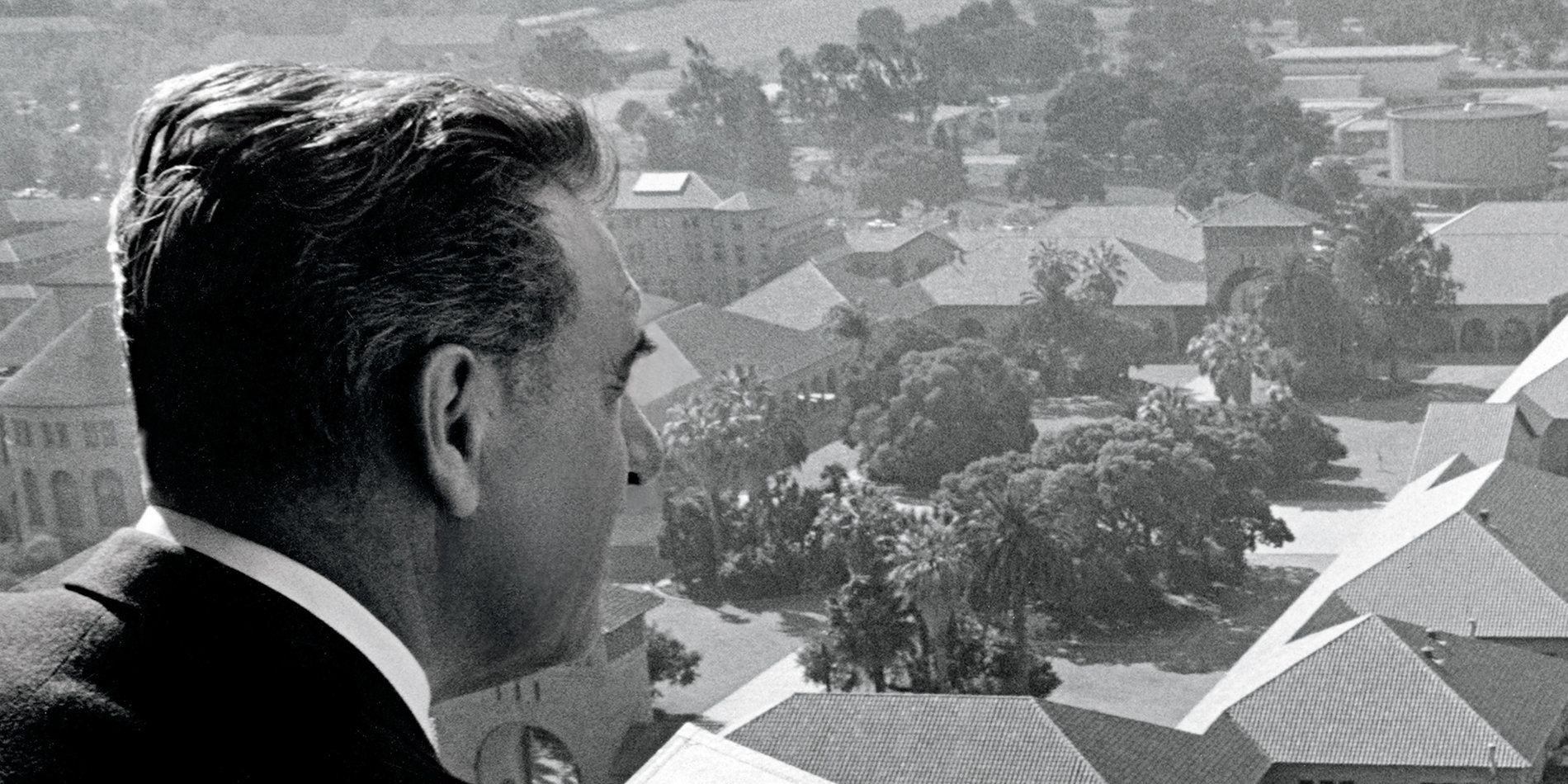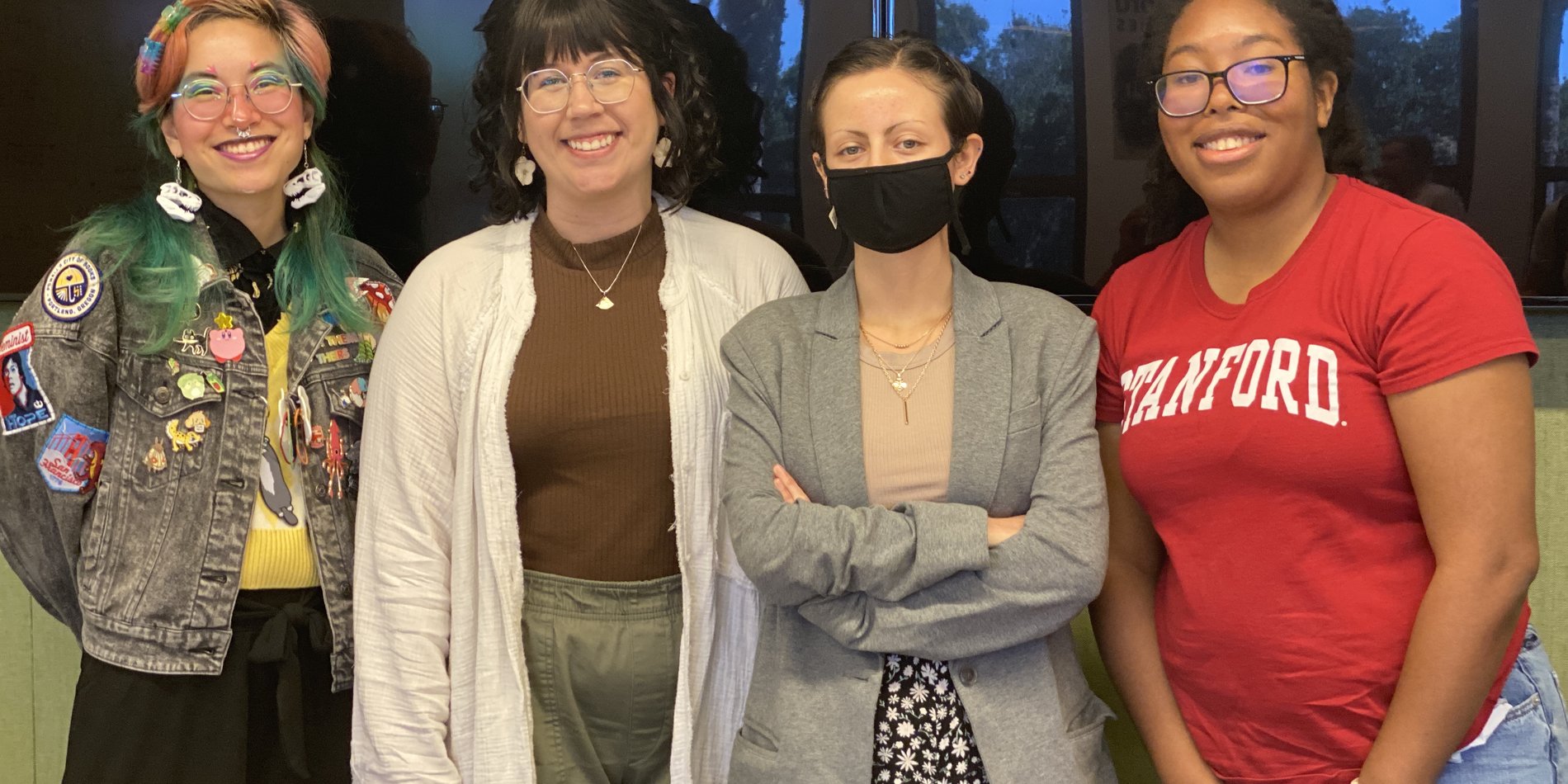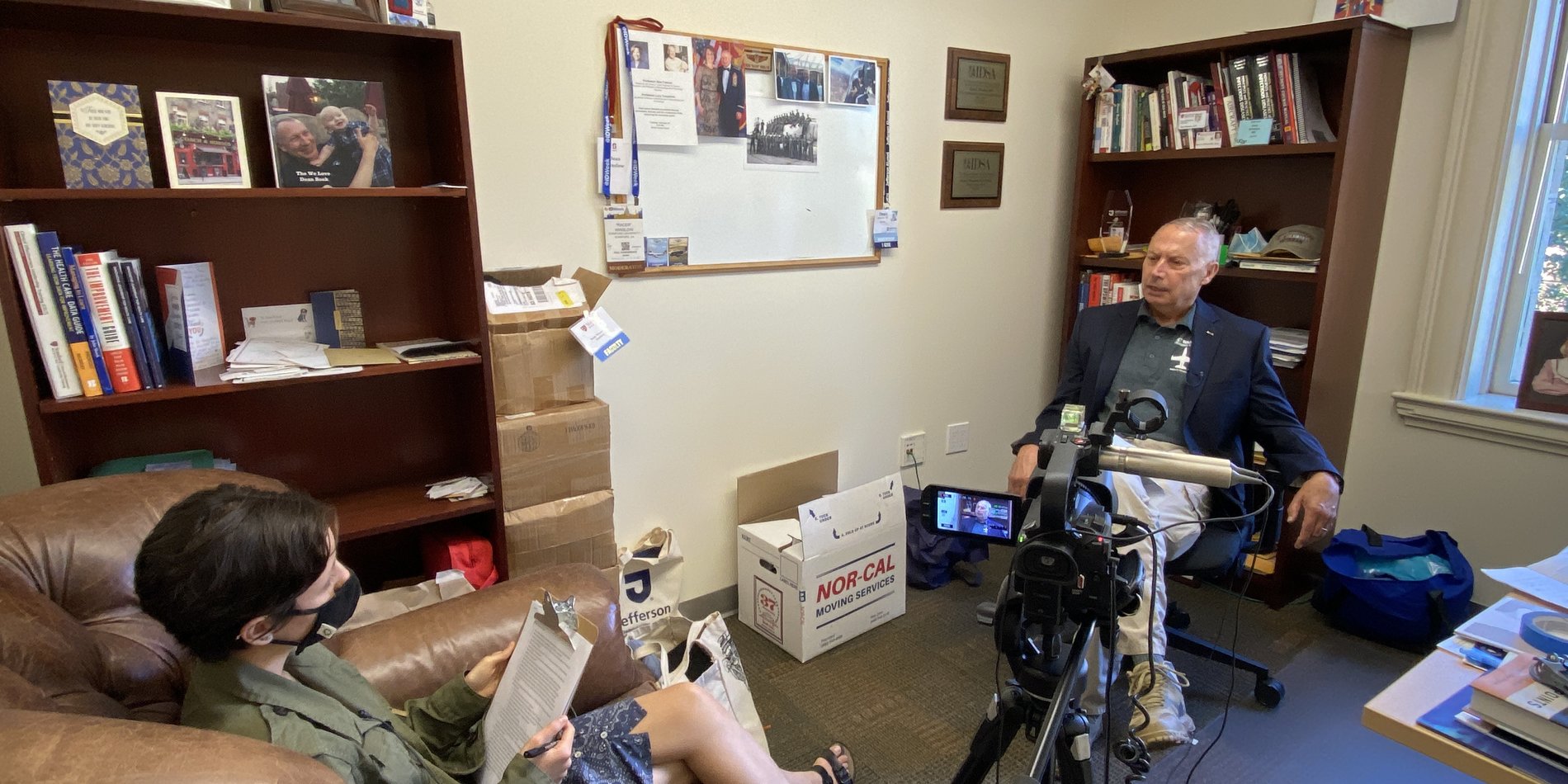Stanford Historical Society presents Beyers Writing Prize and Schofield Oral History Award
“When I was writing my paper about Stanford in the 60s, I got to talk to my grandparents about what they remembered about that time. That was really wonderful.” –Molly Culhane, ’20
“I wanted to really acknowledge what both Lorenz Eitner and Albert Elsen contributed to arts at Stanford because I think they're often overlooked.” –Betsy Fryberger
The Stanford Historical Society presented the Beyers Prize for Excellence in Historical Writing and the Susan W. Schofield Oral History Award at its board meeting on June 9th via Zoom.
The winner of the 2020 Beyers Prize for Excellence in Historical Writing is Molly Culhane, ’20, whose paper “‘A More than Adequate Dose of Nonsense’: Sex, Social Regulation, and Institutional Change in Stanford's Allen Controversy” is an excellent case study of a 1964-1965 dispute involving students, university administrators, and faculty. The incident led to the firing of Stanford's Dean of Women, a restructuring of the student affairs organization, and a loosening of rules regulating female students.
The Beyers Prize, awarded annually by the Historical Society, is named in honor of Robert W. Beyers, director of Stanford News Service from 1961 to 1990. It recognizes Stanford students’ awareness of and interest in the University’s history, as demonstrated through the use of the University Archives, Stanford Libraries, and other sources.
Culhane made thorough use of both secondary literature and primary sources, including university records housed in Special Collections, newspaper articles from the Stanford Daily, and oral histories with alumnae to show how “cultural change played out on a local, interpersonal level.” She linked the controversy not only to changing social and sexual mores but also to concerns regarding free speech and academic freedom, showing how this heady mix provoked debate as well as real change in student life.
Culhane comes from a multi-generational Stanford family. Family members who attended Stanford included her great grandfather, grandparents, great aunts, her father, and an uncle. According to her, “When I was writing my paper about Stanford in the 60s, I got to talk to my grandparents about what they remembered about that time. That was really wonderful.”
The prize included a $500 cash award; a copy of Last of Your Springs, a collection of commencement speeches written by late president emeritus Donald Kennedy and published by the Stanford Historical Society; and a gift membership in the Historical Society.
The 2020 Susan W. Schofield Oral History Award is awarded to Betsy Fryberger for her oral history interviews pertaining to the history of the arts at Stanford. Established in 2018, the Schofield Award is given annually by the Stanford Historical Society Oral History Program for excellence in the practice of oral history. Its purpose is to encourage oral history at Stanford University, to strengthen the collections of the Stanford Historical Society (SHS) and the Stanford Libraries, and to recognize excellent quality in oral history work.
Betsy Fryberger is the Burton and Deedee McMurtry Curator of Prints and Drawings, Emerita, at the Iris & B. Gerald Cantor Center for Visual Arts (formerly Stanford University Museum of Art). She retired in 2009 after working for forty years at the museum. Her work with the SHS Oral History Program began in 2011, when she started an initiative to document changes in the museum and in the study of art at Stanford through interviews with important participants. As nominator Debbie Shepherd, a retired museum professional who worked as a student intern with Fryberger in the 1970s, observed, Fryberger’s “extensive knowledge of the Art Department and the museum at Stanford has given her an edge in framing questions and eliciting a wealth of information that someone less informed and beloved might never have been able to obtain.” Fryberger’s interviews include those with art collectors and philanthropists Harry W. and Mary M. Anderson; Carol Osborne, late associate director and chief curator at the Stanford Museum; former curator of Asian art Patrick Maveety and his wife Daryl Maveety, both Stanford alums and contributors to the Museum; Cantor Director Emeritus Thomas Seligman; and emeriti faculty members Peter Stansky, Wanda Corn, and Paul Turner.
Fryberger first learned about oral history when she and her husband were at the University of Chicago. It was not until years after they came to Stanford and she had retired from her position at the Stanford Museum that Fryberger began her series of oral history interviews on arts at Stanford. In her words, “I wanted to really acknowledge what both Lorenz Eitner and Albert Elsen contributed to arts at Stanford because I think they're often overlooked. Their efforts catapulted Stanford's art department and made it one of the top art departments in the country.”
The Schofield Award included a plaque, a framed historic photo, a citation, and a place for Fryberger on the perennial plaque of Schofield Award recipients.
For information about future Beyers Writing Prize and Schofield Award submission deadlines, please visit the Awards and Contests page on the Stanford Historical Society web site.
Natalie Marine-Street and Josh Schneider contributed to this blog.


